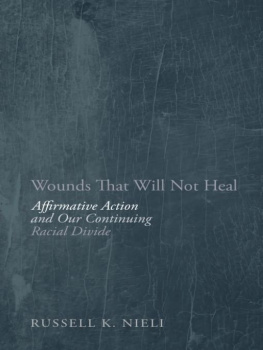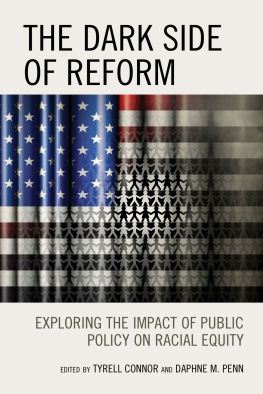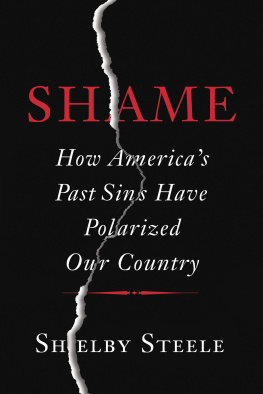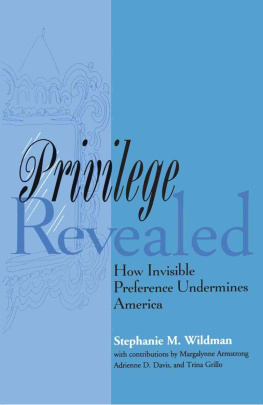INTRODUCTION
Racial preferences in the U.S. first arose in response to the widespread rioting in the urban black ghettos of America during the late 1960s. As a result of these urban upheavals, concerned elites in the federal bureaucracy and federal courts, as well as in the top universities and law schools, concluded that much more had to be done to deal with the pressing problem of black poverty and alienation in America than could be achieved through the prevailing ideal of color-blind justice, which had done so much to inspire the 1950s and 1960s era civil rights movement.1
From the very beginning, however, racial preference policy was anathema to large segments of the American public, including many of those who had fought the good fight to end segregation and racial oppression in the Jim Crow South. For them, racial preferences were a shameful betrayal of the highest ideals of the civil rights movement, and of Justice Harlans magisterial pronouncement in the Plessy case that our Constitution is color-blind and neither knows nor tolerates classes among citizens. And today, more than four decades after their introduction, preferentialist policies continue to be a source of loathing and offense to their many critics, despite the notable shift in their supporters preferred justifications from compensatory justice and pressing social needs to the sweeter sounding note of diversity.
In Wounds That Will Not Heal, I address the continuing controversy over racial preference policies in America, particularly those in university admissions and in employment. Reworking a series of essays compiled over a period of more than three decades, I offer a no-holds-barred critique of race-based employment and university admissions policies, whose consequences for the social harmony and well-being of America, I believe, are almost wholly negative. Until they are removed, racial preferences, I contend, will continue to gnaw at the interethnic norm of reciprocity and fairness, which is the very linchpin holding together racially and ethnicly diverse societies like the United States.
The fact that their supporters must continue to refer to racial preferences through an elaborate double-speak of euphemisms and code wordsaffirmative action, diversity, goals and timetables, race-sensitive admissionsshould tell us something. The need to speak in such euphemisms and code words indirectly acknowledges the fact that preferences based on race run counter to deeply ingrained ideals of justice and fair play in America and require verbal dodges and prettifying obfuscations to be defended before the general public.
In his insightful study, The Ironies of Affirmative Action, political scientist John David Skrentny makes the telling point that toward the end of both world wars bills were introduced in Congress granting preferences in government employment to those who had recently served in the military. Without euphemisms or verbal dodges they were simply called veterans preference bills. And they passed overwhelmingly.
Although one can dispute the wisdom of granting job preferences to veterans, even to those who have taken time out of their personal careers to serve their country in time of war (wise voices argue compellingly that there are more appropriate ways to reward veterans than through means compromising the worthy principle of merit-based selection),2 it is clear that for many Americans granting job preferences for the right reasons breaches no generalized principle of justice. This is why job preferences for veterans can be called by their proper namepreferences. But simply being a member of an underrepresented racial or ethnic minority group is not seen by most people in America as one of these right reasonshence the need for deceit and deception by their defenders when racial preferences are publicly discussed. Does anyone have the slightest doubt about the legislative fate or the level of public support for an honestly labeled Underrepresented Minorities Preference Bill? For a Racial Quota Employment Bill? A Minorities First Act?
But advocates for racial preferences have other reasons for employing deceit and deception in the packaging of their wares than the perceived unfairness of such preferences and their lack of public support. Social philosopher Michael Walzer explained this all very well long ago in his book Spheres ofJustice. In our culture, Walzer wrote, careers are supposed to be open to talents; and people chosen for an office will want to be assured that they were chosen because they really do possess, to a greater degree than other candidates, the talents that the search committee thinks necessary to the office. The other candidates will want to be assured that their talents were seriously considered. And all the rest of us will want to know that both assurances are true. Thats why reserved offices [i.e., racial preferences and racial quotas in jobs and university admissions] in the United States today have been the subject not only of controversy but also of deception. Self-esteem and self-respect, mutual confidence and trust, are at stake as well as social and economic status.3
Does anyone really want to be told, Congratulations, Ms. Jones, youre our newest affirmative action hire!? Or presented with an equivalent announcement of acceptance to a prestigious college? The answer, of course, is no, and because no one wants to be told such things, no one is. And so a hiatus develops between what is actually going onwhich must be hidden, suppressed, distorted, or deniedand open public discussion. Self-esteem and self-respect are on the line, as Walzer says, as well as the overall group image of those targeted for the preferences both in their own minds and in the minds of those in the nonbeneficiary categories. Despite the elaborate concealment and deception, however, most people come to understand pretty well exactly what is going on with all the harmful consequences that follow. One could hardly create a more devilish system than our current policies of racial preferences for reinforcing in the minds of all parties concerned the belief that blacks and other beneficiaries of affirmative action are intellectually inferior to whites and Asians.
Economist and social critic Thomas Sowell, a long-time preference opponent, explains the matter this way in his book








